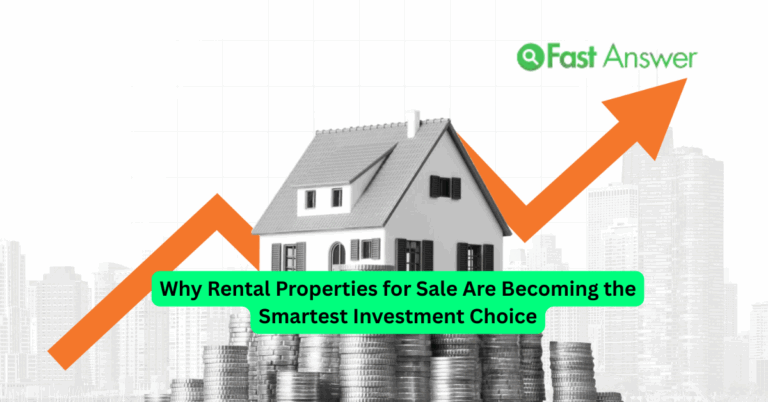Pros and Cons of Real Estate Wholesaling: Is It Right for You?
Real estate wholesaling has become an increasingly popular strategy for aspiring investors who want to make money in real estate without needing significant capital. It involves securing a property under contract and then selling the rights to that contract to another buyer, typically an investor, for a profit. While wholesaling offers opportunities for quick profits, it also comes with its own set of challenges. Understanding the pros and cons of real estate wholesaling is crucial before diving into this strategy. This guide will help you weigh the benefits and drawbacks, so you can determine if wholesaling is the right investment approach for you.
What is Real Estate Wholesaling and How Does It Work?
In real estate wholesaling, the wholesaler enters into a contract with a property owner to purchase a property, often at a discounted rate due to its condition or the seller’s urgency. The wholesaler then finds an interested buyer, usually an investor, and sells the contract for a fee, typically earning anywhere from $5,000 to $20,000 or more per deal. Wholesaling does not require the wholesaler to purchase the property themselves, which makes it an attractive option for those without substantial capital.
The Pros of Real Estate Wholesaling: High Profits with Low Capital Investment
One of the main advantages of wholesaling is that it requires relatively little capital upfront compared to other real estate investment strategies. Since wholesalers don’t actually buy the property, they don’t need to secure financing or deal with the property’s long-term ownership. This makes wholesaling an ideal strategy for beginners who are looking to break into the real estate market without significant financial risk.
Additionally, wholesaling offers the potential for fast profits. Deals can be completed in a matter of weeks, providing quick returns. For investors who are adept at finding motivated sellers and connecting with buyers, wholesaling can be a highly profitable business with consistent income streams. With the right marketing and negotiation skills, wholesalers can close multiple deals every month, creating a scalable business model.
The Cons of Real Estate Wholesaling: Risks and Challenges to Consider
While wholesaling offers high-profit potential, it also comes with its fair share of risks and challenges. One of the primary challenges is finding motivated sellers and buyers. The success of a wholesaler depends heavily on their ability to locate distressed properties or owners who are willing to sell quickly. In competitive markets, finding these properties can be time-consuming and require a lot of effort in networking and marketing.
Another downside is the legal complexity. While wholesaling itself is legal in many states, the contracts involved can be tricky. If not done correctly, wholesalers may face legal issues, such as potential lawsuits or problems with assigning contracts. It’s essential to have a strong understanding of real estate law and contracts, or to work closely with an attorney to avoid any pitfalls.
Limited Control and Dependency on Buyers: Wholesalers Face Challenges
In wholesaling, the wholesaler acts as a middleman, and their success is often contingent on finding a buyer for the contract. This creates a lack of control over the final sale process. Even if the wholesaler secures a great deal with a motivated seller, there’s no guarantee that a buyer will come through or that the deal will close. This reliance on other parties can sometimes lead to deals falling apart at the last minute, which can be frustrating and financially draining.
Additionally, wholesalers are typically working with cash buyers or investors who want significant discounts. This can mean that, despite securing a great contract, the price at which they sell the contract might not be as high as anticipated, limiting their profit margins.
Scaling Your Business: Is Wholesaling Sustainable Long-Term?
While wholesaling can offer fast profits, it’s important to recognize that it may not always be a long-term business model. Initially, wholesalers often rely on finding distressed properties and connecting buyers with sellers, but as their business grows, they may face challenges in scaling. They may need to invest in marketing, hire staff, or even shift to other real estate strategies, such as flipping or owning rental properties, to sustain growth.
Furthermore, market conditions and buyer demand can affect the wholesaling business. In a slower market, it may be harder to find motivated sellers or buyers, and profits may dip. This cyclical nature of wholesaling means that investors must be prepared to adapt their strategies as market conditions change.
FAQ
1. How much money do I need to get started in wholesaling?
You can start wholesaling with little capital since you don’t purchase the properties yourself. However, you’ll need funds for marketing, networking, and possibly legal fees.
2. Is wholesaling legal?
Wholesaling is legal in many areas, but it varies by state. It’s important to understand local real estate laws and contracts to avoid legal issues.
3. How do I find buyers for my wholesale deals?
Building a network of cash buyers and investors is crucial for wholesaling success. You can find buyers through real estate investment groups, online marketplaces, and by marketing your properties.
4. What are the biggest risks of wholesaling?
The main risks include finding buyers for your contracts, dealing with legal complexities, and working in competitive markets where distressed properties may be harder to find.
5. Can wholesaling lead to long-term real estate wealth?
While wholesaling offers quick profits, it may not be a sustainable long-term strategy on its own. Successful wholesalers often diversify into other real estate strategies, such as flipping or renting properties, to build long-term wealth.


